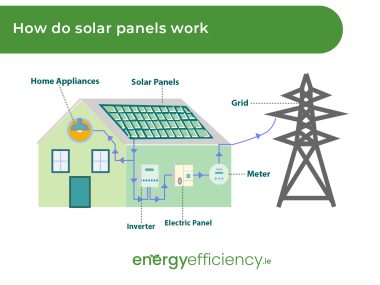- Solar energy emerges as a beacon of hope in the fight against climate change, presenting a sustainable and environmentally friendly alternative to conventional fossil fuel-based energy sources. Its impact on curbing carbon emissions is profound and diverse. By harnessing the abundant power of sunlight, solar energy revolutionizes electricity generation, thereby mitigating the environmental repercussions associated with carbon emissions in several significant ways.
- Primarily, solar energy enables the generation of clean electricity. In contrast to fossil fuel-powered plants, solar panels operate without emitting greenhouse gases like carbon dioxide (CO2) or other harmful pollutants into the atmosphere. This clean electricity production is pivotal in reducing the reliance on carbon-intensive energy sources, thus directly addressing carbon emissions at their source.
- Furthermore, solar energy facilitates the displacement of fossil fuels in electricity generation. By tapping into the inexhaustible energy of sunlight, solar power systems reduce our dependence on coal, natural gas, and oil, which emit substantial amounts of CO2 and pollutants when combusted. This displacement not only cuts down carbon emissions but also mitigates the adverse effects of air pollution and global warming associated with the burning of these finite resources.
- Moreover, solar energy exhibits a significantly lower carbon footprint throughout its lifecycle compared to fossil fuel-based energy generation. Although emissions are associated with the manufacturing, transportation, and installation of solar panels, they are dwarfed by those generated by traditional power plants. As solar technology progresses and becomes more efficient, the environmental impact of solar panel production diminishes, further enhancing the eco-friendliness of solar energy over time.
- Additionally, solar energy helps avoid emissions linked to the extraction, processing, and transportation of fossil fuels. By generating electricity directly from sunlight, solar power systems eliminate the need for these carbon-intensive activities, thereby reducing the overall carbon footprint of energy production.
- Furthermore, solar energy has a remarkable capacity for carbon offsetting, particularly when integrated into the grid. In regions where solar generation coincides with peak electricity demand, such as during hot summer days, solar energy can offset carbon emissions from traditional power sources, contributing to a more sustainable energy mix.
- Moreover, the adoption of solar energy fosters indirect reductions in emissions by promoting energy efficiency and conservation. As individuals, businesses, and communities embrace solar power, they often become more mindful of their energy consumption habits, leading to decreased overall energy usage and further reductions in carbon emissions.
- In summary, the widespread adoption of solar energy signifies a crucial step in the fight against climate change and the pursuit of a more sustainable future. By substantially decreasing carbon emissions across the energy sector, solar energy serves as a cornerstone of global efforts to mitigate the adverse effects of climate change, offering a path to cleaner air, a healthier planet, and a brighter future for generations to come.
How does solar energy contribute to reducing carbon emissions
There are some ways in which solar energy contribute to reducing carbon emissions
-
Clean Electricity Generation:
Solar panels produce electricity without emitting greenhouse gases like carbon dioxide (CO2) or other harmful substances. This results in a decrease in the demand for electricity generated from fossil fuel-powered plants, which are major contributors to carbon emissions.
-
Replacement of Fossil Fuels:
- By utilizing sunlight, solar energy systems lessen the dependency on fossil fuels such as coal, natural gas, and oil for generating electricity. These fossil fuels emit substantial amounts of CO2 and pollutants when combusted, leading to climate change and air pollution.
-
Lifecycle Emissions:
- While there are emissions linked to manufacturing, transporting, and installing solar panels, these emissions are typically lower compared to those from fossil fuel-based power plants. As solar technology advances and becomes more efficient, the carbon footprint associated with solar panel production continues to decrease, enhancing the environmental friendliness of solar energy.
-
Avoided Emissions:
- Solar energy not only displaces electricity generated from fossil fuels but also helps in avoiding emissions related to the extraction, processing, and transportation of fossil fuels. This encompasses emissions from activities such as mining, drilling, refining, and transporting fossil fuels to power plants.
-
Carbon Offsetting:
- In areas where solar energy is integrated into the grid, it can offset carbon emissions during peak electricity demand periods. This is particularly significant when solar generation aligns with high-demand times, such as hot summer days when air conditioning usage is high.
-
Indirect Emissions Reduction:
- The adoption of solar energy can indirectly lower emissions by encouraging energy efficiency and conservation. When individuals, businesses, and communities produce their own electricity from solar panels, they become more mindful of their energy consumption behaviors and often take measures to reduce overall energy usage, thereby further reducing carbon emissions.
- Overall, the widespread adoption of solar energy is crucial in addressing climate change by substantially decreasing carbon emissions and facilitating the transition to a more sustainable and cleaner energy future.












